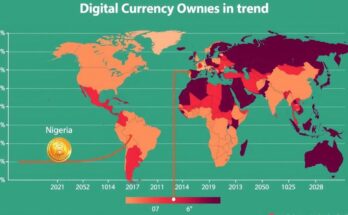The ECOWAS Bank for Investment and Development (EBID) is steadfast in its commitment to maintaining financial relations with Mali, Niger, and Burkina Faso despite rising political tensions within the Economic Community of West African States (ECOWAS). The President of EBID, Dr. George Agyekum Donkor, emphasized that the bank’s focus is on financial obligations, which remain unaffected by the potential exit of these countries from ECOWAS.
The ECOWAS Bank for Investment and Development (EBID) has reaffirmed its dedication to sustaining financial partnerships with Mali, Niger, and Burkina Faso, notwithstanding the escalating political strains within the Economic Community of West African States (ECOWAS). In the light of these tensions, the three nations, now part of the newly established Alliance of Sahel States (AES), are contemplating a withdrawal from ECOWAS. However, Dr. George Agyekum Donkor, President of EBID, insists that these political shifts will not compromise the financial obligations of the countries involved. During the 89th Ordinary Session of the Bank’s Board of Directors, held on October 1, 2024, in Lomé, Dr. Donkor articulated EBID’s position: “Concerning Sahel Alliance member countries such as Mali, Niger, and Burkina Faso, the Bank maintains strong commercial relations with them, despite political tensions.” He further noted that “Burkina Faso, for example, is up to date with its loan repayment obligations, and Niger has also begun to repay its debts.” This reinforces the Bank’s view that its operations should remain apolitical. Dr. Donkor emphasized that the decision of these nations to potentially exit ECOWAS would not impact their repayment commitments, underscoring EBID’s role as a financial, rather than political, institution. This perspective resonates with Togo’s ambitions to bolster cooperative initiatives with the aforementioned countries, particularly in customs operations. Founded in 1999, EBID had finalized its authorized capital at $3.5 billion by the end of 2023, with 70% of this amount held by regional shareholders from 15 ECOWAS member states. The AES represents 6.29% of this capital, while contributions from Nigeria, Ghana, and Togo account for 31.24%, 15.71%, and 3.43%, respectively.
The Economic Community of West African States (ECOWAS) has recently faced political unrest, particularly affecting member states such as Mali, Niger, and Burkina Faso. In response to this situation, those countries are forming the Alliance of Sahel States (AES) as they deliberate on exiting ECOWAS. Despite this, the ECOWAS Bank for Investment and Development (EBID) remains committed to businesses and financial affairs with these nations. EBID, unencumbered by political dynamics, seeks to uphold its financial integrity and support for these countries. Established in 1999, EBID operates as a financial institution aiming to foster economic development and investment in the ECOWAS region.
EBID’s commitment to maintaining partnerships with Mali, Niger, and Burkina Faso, despite their political challenges within the ECOWAS framework, emphasizes the Bank’s focus on financial autonomy and accountability. Dr. George Agyekum Donkor’s reaffirmation that the repayment obligations remain intact, regardless of the political circumstances, illustrates the Bank’s intent to prioritize economic stability and cooperation in the West African region. As these nations navigate their affiliations and financial responsibilities, EBID’s role as an apolitical financial institution is crucial in ensuring continued support and development.
Original Source: www.togofirst.com




